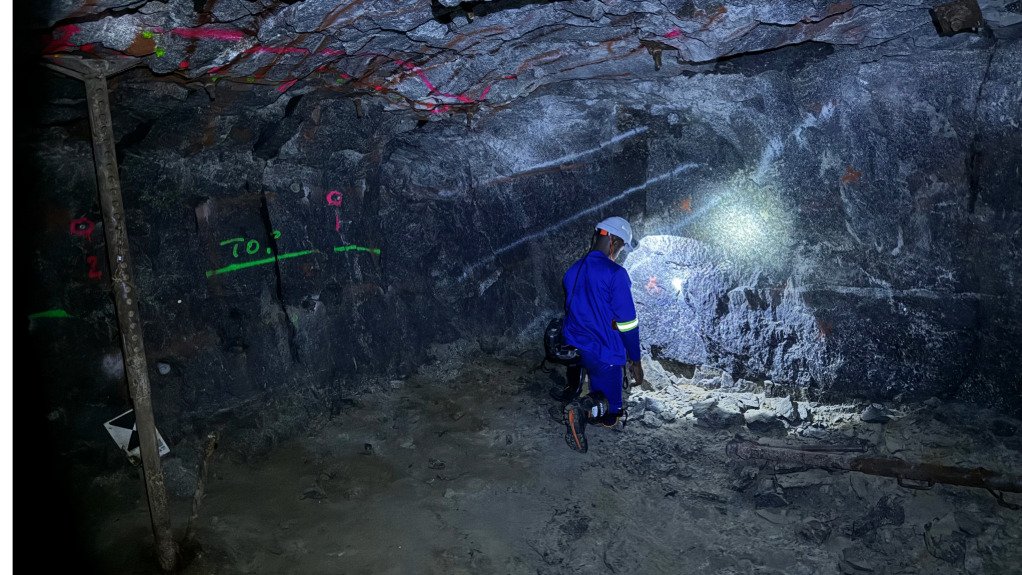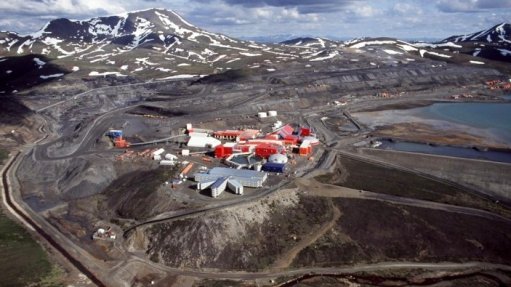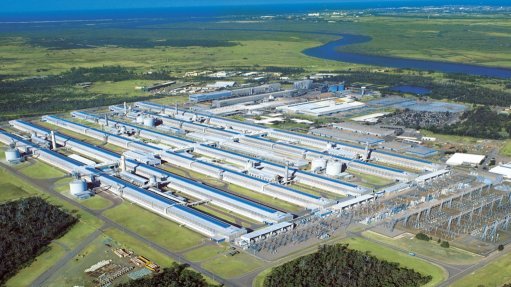Focus on programmes driving tech development


TESTING THE LIMITS The Mandela Mining Precinct's Test Mine, based at platinum producer Impala Bafokeng’s Maseve mine, offers the opportunity to put to test thoeries and technologies being developed in a safe and controlled real-life environment
The five mining technology research programmes of the Mandela Mining Precinct (MMP) have garnered much attention and have, thus far, yielded positive results, pointing to “great future potential”, reports MMP director Julie Courtnage.
In celebrating the MMP’s fifth anniversary, she tells Mining Weekly that the MMP’s list of deliverables is vast, and that the organisation continues to make progress with each of the five programmes it is currently running.
Courtnage explains that the five programmes include the Longevity of Current Mines (LoCM), Mechanised Mining Systems (MMS), Advanced Orebody Knowledge (AOK), Real-Time Information Management Systems (RTIMS) and Successful Application of Technology Centred Around People (SATCAP).
In addition, the Test Mine Facility is under way where products can be researched, tested and demonstrated before industry uptake.
Courtnage says the LoCM programme seeks to improve mining practices and procedures, particularly for established mines already constrained by existing infrastructure.
She says one example is the Isidingo drill design challenge, launched in 2018 to modernise drill development, which produced a proven drilling technology using a power source alternative to the traditionally used pneumatic power drill which drills faster, is lighter and is easier to handle, compared with legacy drills.
The modern drills being developed are manufactured by two local original-equipment manufacturers (OEMs).
“The drills are unique in design and allow for effective remote operability, manoeuvrability, and are more environment friendly compared with conventional drills,” enthuses Courtnage.
Importantly, the modern drills are also more suitable for women to use in the mining industry, given that they are lighter, smaller and quieter when handled and operated, she highlights.
“Another notable outcome is a specially designed remote scraper equipped with proximity detection,” Courtnage posits.
Additionally, LoCM has also initiated a remote-control charging unit for explosives, which is a safer explosive’s charging system that removes people from the mine face and blasting area while charging explosives, consequently making volatile areas safer for workers and explosive's handlers.
Courtnage says the MMS programme promotes sustainable mechanised solutions for gold and platinum group metals (PMG) mines by introducing disruptive technologies to facilitate zero harm.
MMS also aims to achieve financially sound underground mining operations by improving production through consistency measures and at optimal costs.
She says a key project output of the MMS programme includes advancements in diamond wire cutting – a rock-breaking method in which equipment is operated remotely. “The equipment being developed is light, safe, easy to use and robust for underground applications.”
Further, MMS has also produced a series of guidelines applicable to energy use, pillar design, best practice applications of mechanised equipment, and development of shaft and access infrastructure.
Meanwhile, the AOK programme is intended to provide mine planners, rock engineers, geologists and other decision-makers with information and knowledge that will contribute to optimal minerals extraction and zero harm objectives.
“In short, the AOK programme focusses on the demonstration and testing of technologies at the rock face, to identify structures ahead of the face,” says Courtnage.
Some of the technologies advanced through the AOK programme include a ground-penetrating radar, which realises the multiple uses of such technology as a tool to identify lithologies, fractures and geological features.
In addition, an electric resistance tomography tool the MMP helped develop under the AOK programme has proven to be a useful tool for identifying geological features in virgin ground, while an integrated thermal acoustic device can assist miners in detecting a loose rock by using a non-contact thermal camera.
The RTIMS programme aims to improve data sourcing, transmission, storage, dissemination, and information management tools, and refine practices and procedures for mines, as based on industrial Internet of Things technologies, Fourth Industrial Revolution (4IR) operating models and holistic systems thinking and design.
It further aims to converge the functional worlds of operational technology and information technology, which address standards, cyber resilience and interoperability aspects.
RTIMS, which develops and implements smart connected systems for mining from sensors to dashboard, is focussed on ensuring that the right information is sent to the right person, at the right time.
“RTIMS is fundamental in assisting mining companies on their 4IR and digitalisation maturity journeys,” she stresses.
Courtnage highlights that RTIMS aims to enable the “mining of big data” and the provision for insights from the artificial intelligence capability that is being modelled.
An example was the establishment of the Smart Integrated Mining laboratory at tertiary education institution Stellenbosch University, which hosts the digital group of intelligent mine-related devices and equipment on a common platform, and which also falls under the RTIMS umbrella of developments.
Further, the MMP’s SATCAP programme delves into understanding how people relate to each other and with technology, by considering the impact, effects and challenges that are associated with technology and their use by humans within the sector, driven by the emergence of 4IR, globally.
“SATCAP has developed a series of guidelines on change management related to the modernisation of mining, that are being adopted widely in the sector,” says Courtnage.
A further significant result from the SATCAP programme is the memorandum of understanding between all the mining unions and the MMP, to create the Organised Labour Consultation Forum.
Importantly, the Test Mine Facility, while not a research programme, is an underground testing facility, which underpins the research of all five programmes, and is used for testing, developing, and demonstrating new technologies that contribute towards mining safety and modernisation.
The Test Mine Facility is located at platinum producer Impala Bafokeng’s Maseve mine, at a decline shaft which is currently under care and maintenance, with underground workings and workshops to conduct product testing in a mining environment.
Article Enquiry
Email Article
Save Article
Feedback
To advertise email advertising@creamermedia.co.za or click here
Press Office
Announcements
What's On
Subscribe to improve your user experience...
Option 1 (equivalent of R125 a month):
Receive a weekly copy of Creamer Media's Engineering News & Mining Weekly magazine
(print copy for those in South Africa and e-magazine for those outside of South Africa)
Receive daily email newsletters
Access to full search results
Access archive of magazine back copies
Access to Projects in Progress
Access to ONE Research Report of your choice in PDF format
Option 2 (equivalent of R375 a month):
All benefits from Option 1
PLUS
Access to Creamer Media's Research Channel Africa for ALL Research Reports, in PDF format, on various industrial and mining sectors
including Electricity; Water; Energy Transition; Hydrogen; Roads, Rail and Ports; Coal; Gold; Platinum; Battery Metals; etc.
Already a subscriber?
Forgotten your password?
Receive weekly copy of Creamer Media's Engineering News & Mining Weekly magazine (print copy for those in South Africa and e-magazine for those outside of South Africa)
➕
Recieve daily email newsletters
➕
Access to full search results
➕
Access archive of magazine back copies
➕
Access to Projects in Progress
➕
Access to ONE Research Report of your choice in PDF format
RESEARCH CHANNEL AFRICA
R4500 (equivalent of R375 a month)
SUBSCRIBEAll benefits from Option 1
➕
Access to Creamer Media's Research Channel Africa for ALL Research Reports on various industrial and mining sectors, in PDF format, including on:
Electricity
➕
Water
➕
Energy Transition
➕
Hydrogen
➕
Roads, Rail and Ports
➕
Coal
➕
Gold
➕
Platinum
➕
Battery Metals
➕
etc.
Receive all benefits from Option 1 or Option 2 delivered to numerous people at your company
➕
Multiple User names and Passwords for simultaneous log-ins
➕
Intranet integration access to all in your organisation



















